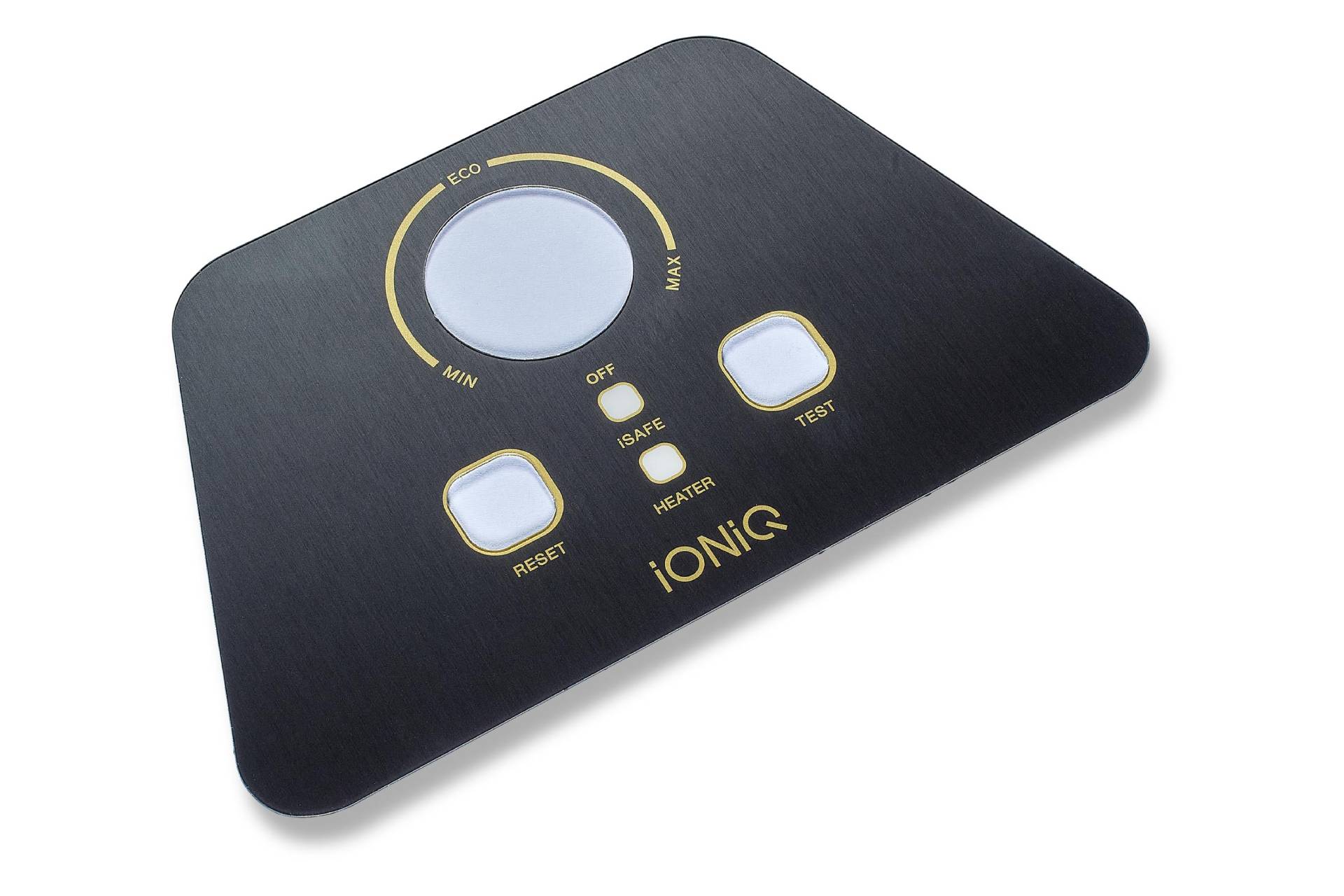A Buyer’s Guide to Choosing the Right Plastic Nameplates for Your Needs
A Buyer’s Guide to Choosing the Right Plastic Nameplates for Your Needs
Blog Article
How Plastic Nameplates Are Manufactured: A Comprehensive Guide to Their Production Process
The production of plastic nameplates entails a number of precise actions, beginning with the choice of suitable products to the last finishing touches. Each stage is essential, guaranteeing the item satisfies specific requirements for resilience and looks. Different manufacturing techniques play a considerable duty in crafting these nameplates. Understanding these procedures can lose light on the intricacies behind what might appear like a straightforward product. What factors contribute to the quality and customization of these nameplates?
Recognizing Plastic Materials Made Use Of for Nameplates

The Layout Process: From Idea to Prototype
The layout process for plastic nameplates starts with a clear idea that guides the total development. Developers collaborate with clients to specify the purpose, design, and specific demands of the nameplate. This initial stage includes conceptualizing sessions, sketching ideas, and choosing shades and fonts that line up with branding goals.Once the principle is established, designers utilize computer-aided design (CAD) software application to develop thorough electronic depictions. These prototypes enable visualization and changes before moving on. Comments from stakeholders is integral throughout this stage, as it assists refine the style to satisfy expectations.After finalizing the electronic prototype, a physical version might be generated, often through techniques like 3D printing. This tangible depiction enables additional analysis of looks and capability. Overall, the design process is a crucial action that lays the structure for the effective production of top quality plastic nameplates.
Reducing and Forming the Plastic
In the cutting and forming phase of plastic nameplate manufacturing, the option of products plays an important duty in determining the final product's top quality and sturdiness (Plastic Nameplates). Numerous accuracy reducing strategies, such as laser cutting and CNC machining, warranty that the plastic is formed with accuracy and uniformity. This mix of careful product option and advanced cutting methods is important for generating premium nameplates

Material Choice Refine
Picking the best material is necessary for generating high-grade plastic nameplates. Numerous sorts of plastics are readily available, each offering distinctive benefits and characteristics. Usual options include acrylic, polycarbonate, and PVC. Acrylic is favored for its quality and UV resistance, making it excellent for outside applications. Polycarbonate, recognized for its sturdiness and effect resistance, is suitable for settings that call for improved protection. PVC is often picked for its cost-effectiveness and adaptability in style. The selection process additionally considers aspects such as color, thickness, and surface area coating, which can significantly affect the final appearance and performance of the nameplate. Inevitably, the selected material needs to align with the meant usage and visual goals of the plastic nameplate.
Accuracy Trimming Methods
While choosing the appropriate product prepares, accuracy cutting techniques play an essential duty in shaping the plastic nameplates right into their last types. Various techniques, consisting of laser cutting, CNC milling, and pass away cutting, are employed to accomplish accuracy and uniformity. Laser cutting uses focused light to generate intricate styles and tidy sides, perfect for complicated patterns. CNC milling supplies convenience by getting rid of excess product with precision, accommodating various thicknesses and forms. Pass away cutting, on the other hand, permits automation of consistent items, enhancing performance. Each strategy is picked based on the layout requirements and the preferred surface, making sure that the last product fulfills high quality requirements and consumer assumptions while preserving durability and visual allure.
Printing Methods for Personalization
How can suppliers attain vivid and exact designs on plastic nameplates? The answer depends on numerous printing strategies tailored for customization. Digital printing has obtained popularity as a result of its capability to generate detailed layouts and high-resolution images straight onto plastic surfaces. This method permits quick turnaround times and very little setup costs, making it ideal for short runs and individualized orders.Screen printing stays another widely used strategy, particularly for larger amounts. It entails developing a stencil and applying layers of ink, causing rich colors and resilience. UV printing, which makes use of ultraviolet light to cure the ink, is likewise efficient, supplying exceptional attachment and resistance to fading.Additionally, pad printing offers versatility for irregularly shaped nameplates, permitting for thorough layouts on difficult surface areas. These printing methods allow makers to meet diverse customer requires while making sure quality and durability in their plastic nameplate products.
Surface Treatments and Finishing Options

Quality Control Procedures in Production
Guaranteeing the greatest criteria of quality assurance during the manufacturing of plastic nameplates is crucial for maintaining item honesty and client complete satisfaction. Producers implement extensive evaluation protocols at numerous phases of the manufacturing procedure. Initially, raw materials undertake comprehensive screening to validate they fulfill requirements for longevity get redirected here and color uniformity. During the molding stage, automated systems keep track of parameters such as temperature level and stress to avoid defects.In addition, aesthetic assessments are conducted to recognize any type of surface area flaws or misalignments. When the nameplates are created, they are subjected to functional examinations, including bond examinations for published elements and tension examinations for sturdiness. Quality assurance teams frequently use statistical tasting approaches to analyze batches, making certain that any variances from standards are immediately addressed. This in-depth technique not just enhances product top quality however additionally fosters depend on with customers, attesting the manufacturer's commitment to excellence in every nameplate produced.
Product packaging and Circulation of Finished Nameplates
The packaging and circulation of ended up plastic nameplates are important steps in ensuring they get to clients in suitable problem. Numerous product packaging products are chosen to shield the nameplates during transit, while shipping methods are thoroughly selected based on effectiveness and cost-effectiveness. Additionally, effective storage space remedies are executed to maintain quality until the nameplates are provided.
Packaging Products Made Use Of
Choosing ideal product packaging materials is vital to guarantee their security during transportation when distributing ended up plastic nameplates. Typically used materials include bubble wrap, foam extra padding, and cardboard boxes, all developed to cushion the nameplates versus influences and shocks. Bubble cover provides a flexible obstacle, while foam padding guarantees that nameplates continue to be safely in place, minimizing the danger of scratches or breakage. In addition, sturdy cardboard boxes are utilized to have the nameplates, providing structural assistance and protection from exterior components. Labels might be applied to show managing instructions or breakable components, better boosting security throughout transport. On the whole, utilizing premium product packaging materials significantly adds to the honesty and presentation of the finished plastic nameplates upon arrival at their destination.
Delivering Approaches Employed
Effective circulation of finished plastic nameplates relies upon numerous shipping approaches that ensure secure and timely delivery. Companies often utilize copyright services, freight shipping, and post offices, depending on the size, weight, and location of the plans. For local shipments, messenger solutions provide rapid transit, ensuring nameplates reach customers promptly. For larger orders, freight shipping is favored, making use of vehicles or shipping containers to transfer bulk quantities successfully. Post offices function as an affordable choice for smaller shipments, particularly for domestic distributions. All shipping approaches focus on safety product packaging to protect against damages throughout transportation. Tracking systems are likewise utilized to monitor shipments, giving customers with real-time updates and reassurance relating to the condition of their orders.
Storage Solutions Implemented

Regularly Asked Concerns
What Sorts Of Businesses Typically Use Plastic Nameplates?
Plastic nameplates are frequently made use of by different services, including offices, manufacturing facilities, colleges, and hospitals. These nameplates serve necessary functions such as recognition, details screen, and branding, adding to business performance and expert look across varied environments.
Just how Lengthy Does the Entire Manufacturing Process Take?
The manufacturing process duration differs based on intricacy and quantity, commonly ranging from a few days to a number of weeks. Variables influencing this timeline consist of design authorization, product schedule, and manufacturing methods used by the firm.
Can Plastic Nameplates Be Recycled After Use?
Plastic nameplates can be reused, offered they are made from recyclable materials. Nevertheless, the availability of reusing programs and neighborhood guidelines may affect their recyclability. Correct disposal methods are vital to guarantee effective recycling.
What Are the Environmental Impacts of Plastic Nameplate Production?
The ecological impacts of plastic nameplate production include carbon emissions, resource exhaustion, and contamination from producing processes. Plastic Nameplates. Furthermore, inappropriate disposal adds to plastic waste, detrimentally influencing communities and wildlife, highlighting the requirement for sustainable click now practices
Exist Any Kind Of Security Interest In Plastic Nameplates?
Security issues pertaining to great post to read plastic nameplates largely entail possible chemical exposure during production and the threat of products deteriorating in time, which may lead to harmful compounds being released, influencing both human health and the atmosphere. While numerous products can be used for nameplates, plastic remains a preferred selection due to its adaptability and longevity. In the cutting and forming stage of plastic nameplate manufacturing, the selection of materials plays a vital role in figuring out the final item's top quality and durability. Picking the best material is essential for producing high-grade plastic nameplates. While selecting the appropriate product lays the foundation, accuracy cutting techniques play a vital role in forming the plastic nameplates into their last kinds. When distributing ended up plastic nameplates, choosing ideal packaging materials is vital to guarantee their security throughout transit.
Report this page